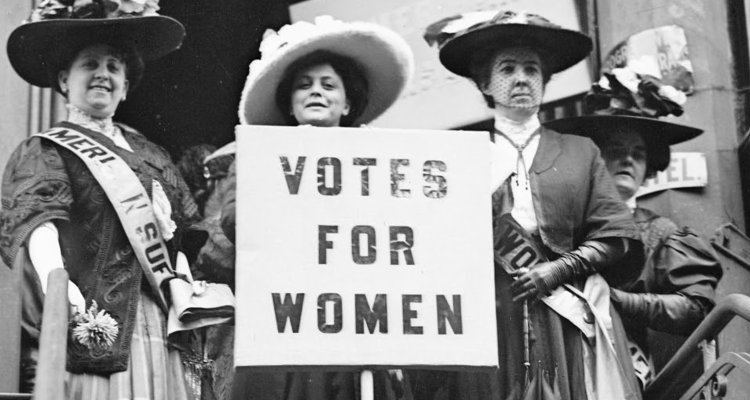The Ohio County Public Library’s new People’s University series is arguably one of its most important. It’s shocking to realize that women could not vote as citizens of Earth’s greatest democratic republic until the 20th century, 1920 to be precise, nearly 150 years after the 13 colonies declared their independence, and 133 years after the ratification of humankind’s most radical enshrinement of rights, the U.S. Constitution.
It took a century and a half of persistent struggle by generations of mothers, daughters, sisters and their allies, for women to finally win the right to vote. Now, we celebrate the centennial of that victory even as concern grows over the survivability of all of our voting rights.
The six-part series, “The Struggle for Women’s Rights,” will explore the relatively brief history of universal suffrage in the context of human rights, and the very fragile consensus that holds it all together.
The People’s University LIVESTREAM: The Struggle for Women’s Rights, kicks off at 6:30 p.m. Thursday, Aug. 20.
People’s University classes include:
Class 1, Aug. 20, The Ratification of the 19th Amendment — 100 Years
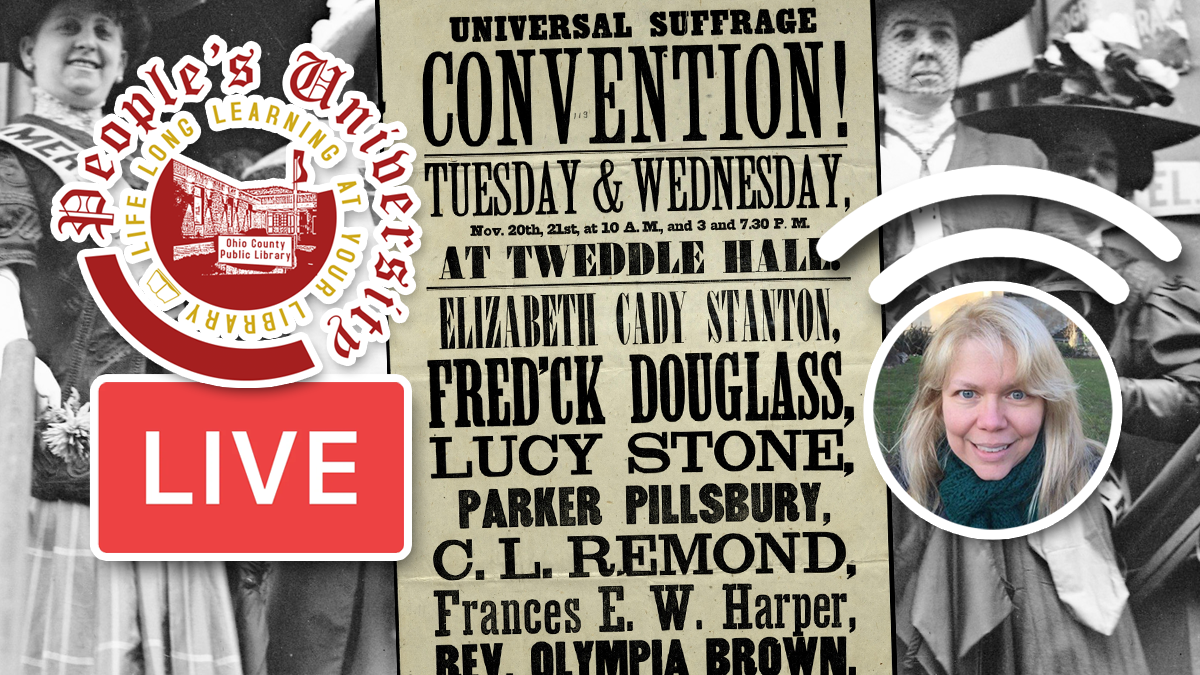
The first wave of American feminism before the Civil War culminated in the July 1920 convention at Seneca Falls, New York, where 68 women (including Lucretia Mott) and 32 men (including abolitionist Frederick Douglass) signed the “Declaration of Sentiments” drafted by Elizabeth Cady Stanton, which said, “All men And Women are created equal.” At the convention, suffragists and abolitionists spoke out for human rights and equality. In the years that followed, suffragists like Susan B. Anthony, Alice Paul, Lucy Stone and Ida B. Wells carried on the long struggle until the 19th Amendment, which finally recognized the right of women to vote, was ratified on Aug. 18, 1920.
Class instructor will be Anne Marie Lofaso, who is the Arthur B. Hodges Professor of Law at the West Virginia University College of Law. In 2010, she was named WVU College of Law Professor of the Year. She is also a four-time recipient of the WVU College of Law faculty-scholarship award.
Class 2, Aug. 27, Warrior Poets — Powerful Women in History
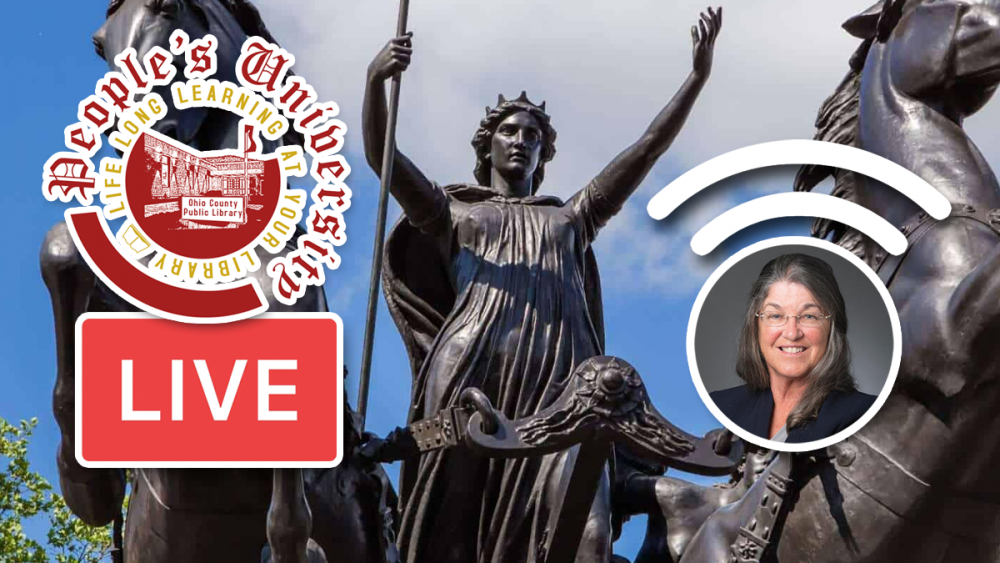
There have always been women in the ancient past who transcended gender expectations and rose to dominate the headlines of history. How did they do it? Some were born to power and exerted it brilliantly like Empress Wu of China or Sorkhaktani, Queen of the Mongols. Others were angry and fought back, sometimes on the battlefield, like Boudicca of Britain and sometimes politically like Empress Pulcheria of Byzantium. Some women found authority in religion from monastic founders like Radegund of France to religious warriors like Joan of Arc. Finally, some women are remembered for their intellectual achievements like Hypatia of Alexandria or Lady Murasake of Japan. There are many paths to fame, and ancient women proudly walked them. Instructor Joyce E. Salisbury will introduce participants to some of these powerful women and hear their stories.
Salisbury is professor emerita of history from the University of Wisconsin — Green Bay. She is author of many books and most recently has written and recorded courses for Great Courses and Audible, including “Warriors, Queens and Intellectuals: 36 Great Women before 1400” and “Ten Women Who Ruled the Renaissance.”
Class 3, Sept. 3, Founding Mothers

From Abigail Adams, who famously instructed her husband to “remember the ladies,” to Phillis Wheatley, an ex-slave who became the first African American and second woman (after Anne Bradstreet) to publish a book of poems; Deborah Sampson; Mercy Otis Warren; Esther Reed, and others, the class will explore the lives and actions of the women leaders of the founding period of the United States of America.
Instructor Jerra Jenrette is professor of history at the Department of History, Politics, Languages and Cultures at Edinboro University of Pennsylvania. A veteran People’s University instructor, Jenrette previously led People’s University: World War II — Class 5: “On the Home Front and Abroad: Women in WWII” in 2018.
Class 4, Sept. 10, Wheeling’s Suffragists

On Nov.14, 1896, the Women’s Suffrage Movement in Wheeling was for the first time formally organized in the home of Dr. Harriet B. Jones as the Political Equality League. Dr. Jones was elected president, Miss Jennie B. Wilson, corresponding secretary, and Mrs. George K. Wheat treasurer. Among the charter members were Mrs. Ada Barr, Mrs. W. T. Burt, Mrs. Elliott, Mrs. Henry Ott, Miss Sue Rice and Miss Lizzie Swift. According to a 1916 article, “Among the prominent suffragists who ‘manned’ the automobiles were: Mesdames George A. Laughlin, Robert Hazlett, Gibson Caldwell, W. D. McCoy and E. S. Romine, and Misses Elizabeth Cummins, Mary Clifford, Ruth Mason, Gladys Dexter, Anne Cummins and Florence Hoge.” Instructors Judi Hendrickson and Jeanne Finstein are local history researchers who enjoy discovering and sharing interesting pieces of the past, particularly Wheeling history. They are the authors of a book on local history, Walking Pleasant Valley, and are long-time, active members of the historic preservation organization, Friends of Wheeling.
Class 5, Sept. 17, The Equal Rights Amendment
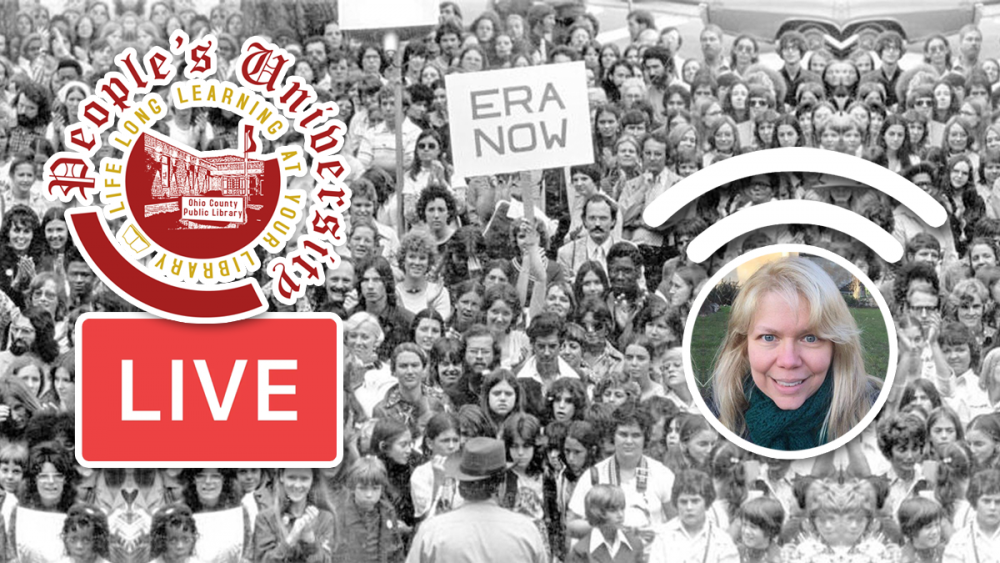
For Constitution Day 2020, this class will examine the amendment process in the context of the struggle for the passage of the Equal Rights Amendment (ERA), which read, in its three incarnations:
• 1923 version (“Lucretia Mott Amendment” by Alice Paul, Crystal Eastman, et al): “Men and women shall have equal rights throughout the United States and every place subject to its jurisdiction”;
• 1943 version: “Section 1: Equality of rights under the law shall not be denied or abridged by the United States or by any state on account of sex.” (Alice Paul);
• 2014 version: “Section 1: Women shall have equal rights in the United States and every place subject to its jurisdiction. Equality of rights under the law shall not be denied or abridged by the United States or by any State on account of sex.”
On March 22, 1972, the ERA passed the Senate and the House of Representatives by the required two-thirds majority and was sent to the states for ratification. An original seven-year deadline was later extended by Congress to June 30, 1982. When this deadline expired, only 35 of the necessary 38 states (the constitutionally required three-fourths) had ratified the ERA. It is therefore not yet a part of the U.S. Constitution. The Equal Rights Amendment has been reintroduced in every session of Congress since 1982.
Anne Marie Lofaso will be the instructor.
Class 6, Sept. 24, The “Me Too” Movement and Contemporary Issues
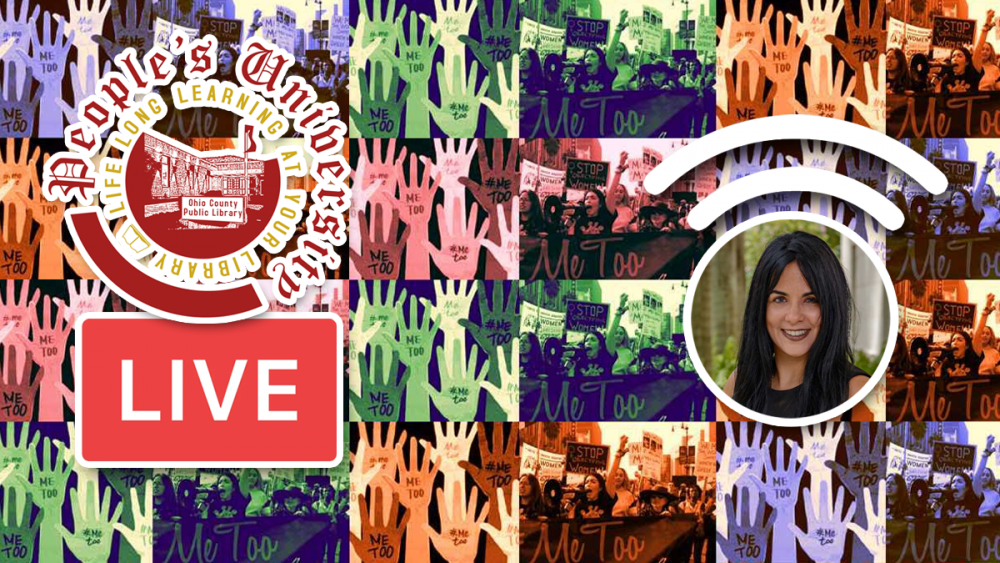
In 2006, the Me Too Movement was founded by survivor and activist Tarana Burke. In those early years, vision was developed to bring resources, support and pathways to healing where none existed before. The group set to work building a community of advocates determined to interrupt sexual violence wherever it happens. In 2017, the #metoo hashtag went viral and woke up the world to the magnitude of the problem of sexual violence. This talk will focus on anti-discrimination laws and sex discrimination in the workplace, and the ways in which their shortfalls brought us to the point of needing such a dramatic reckoning.
Instructor Kerri L. Stone, professor of law, Florida International University, teaches employment discrimination, employment law, labor law and contracts at the FIU College of Law. Stone received her Juris Doctorate from NYU School of Law, where she was named a Robert McKay Scholar and served as the eevelopments editor of the NYU Journal of International Law and Politics.
The People’s University is a free program for adults who wish to continue their education in the liberal arts, featuring courses taught by experts in each subject that enable patrons to pursue their goal of lifelong learning in subjects such as history, philosophy and literature. People’s University classes are held from 6:30-8 p.m. Thursdays on YouTube Live and Facebook Live.
Subscribe to the People’s University YouTube Channel or like the People’s University Facebook page to receive notifications of upcoming People’s U broadcasts.
• Seán Patrick Duffy is the adult programming coordinator at the Ohio County Public Library and the executive director of the Wheeling Academy of Law and Science (WALS) Foundation at the First State Capitol in Wheeling. He earned a bachelor’s degree in history and an MBA from Wheeling Jesuit University and a JD from the Washington College of Law at the American University. He is the author or editor of four books and numerous articles on local history and the editor of the Upper Ohio Valley Historical Review. One of the founders of ArchivingWheeling.org, Duffy is vice president of the West Virginia Independence Hall Foundation Board.


